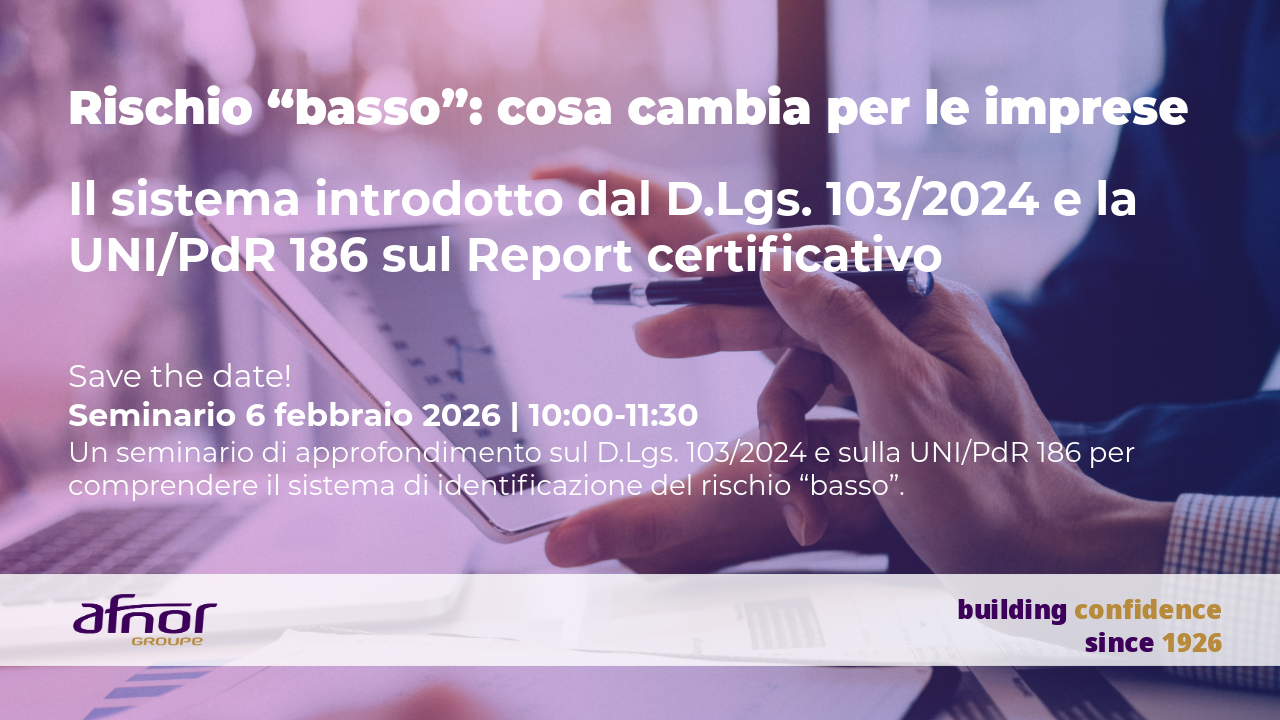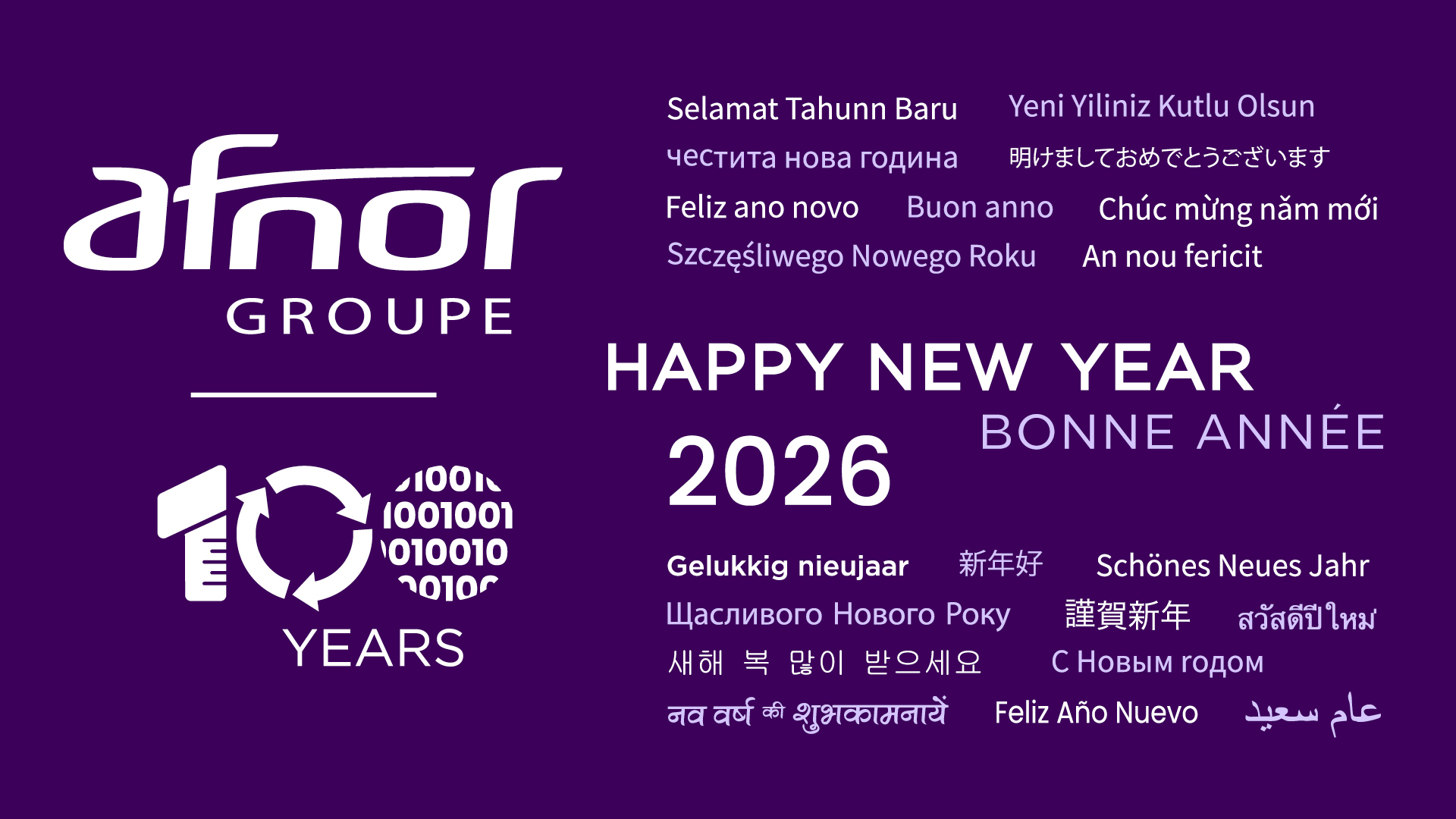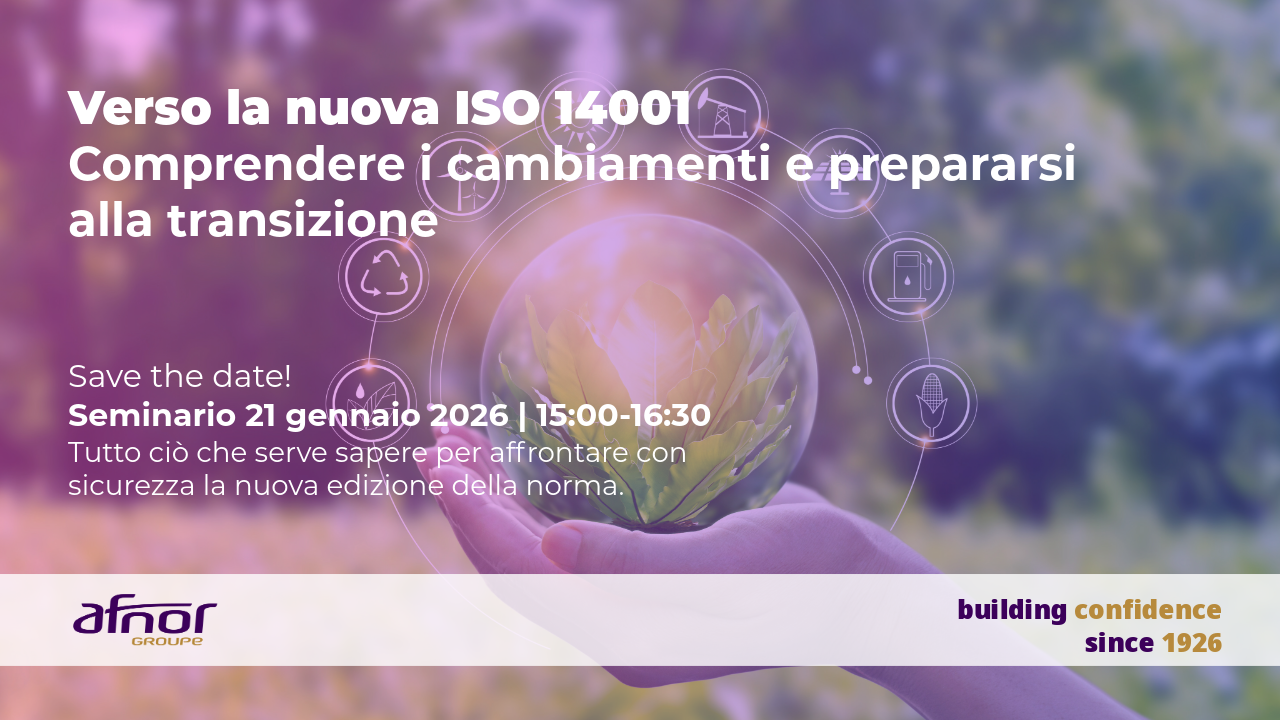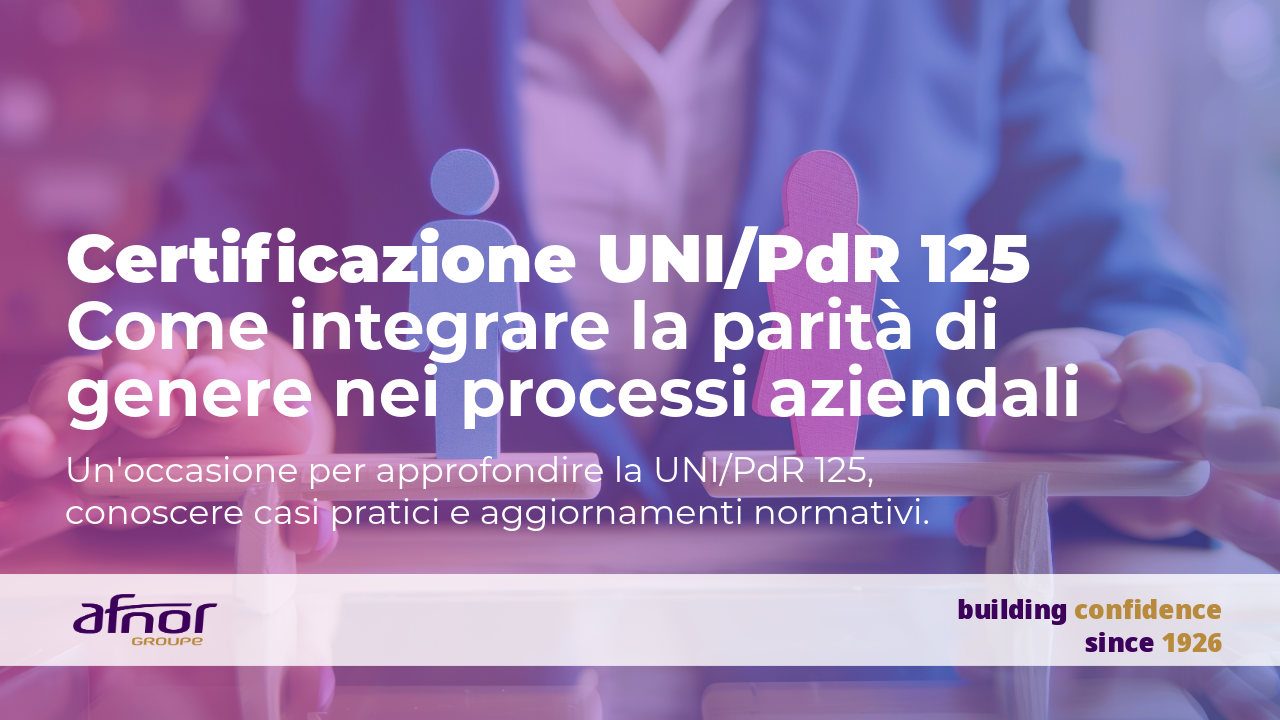Seven years after its first study, the AFNOR Group has drawn up an updated portrait of Quality, Safety and Environment (QSE) professionals. This fast-changing function is becoming a strategic pillar in the overall performance of organizations, but is still in search of recognition.
Profile of QSE professionals
The QSE function is becoming increasingly feminized: 63% of respondents are women, compared with 54% in 2018. This figure reflects a positive trend, even if access to management positions is still more common among men. The average age of professionals is now 42, reflecting an aging population, with more seniors than juniors. The sector attracts highly qualified profiles: the majority of QSE managers hold specialized Master's degrees, often focusing on international standards. These well-structured academic backgrounds help build solid careers, centered on technical expertise and mastery of ISO standards.
A function firmly rooted in organizations
The vast majority of QSE professionals work in the private sector, mainly in manufacturing and services. SMEs are their preferred field of action, but major international groups mobilize larger QSE teams, sometimes comprising dozens of employees. The function is now well established in organizational charts: 94% of professionals hold permanent positions, and almost a third sit on the management committee. This presence at the highest levels of governance illustrates the growing importance of QSE as a strategic function, going beyond mere regulatory compliance.
QSE certification: a worldwide passport
QSE certification is based on three major international standards: ISO 9001 for quality, ISO 14001 for the environment and ISO 45001 for occupational health and safety. Together, they form an integrated management system that enables companies to structure their processes, reduce risks and boost the confidence of their stakeholders. In a context of globalization, these certifications have become a veritable passport to access international markets. Many clients require their suppliers to be ISO-certified, making them an essential criterion for exports and global partnerships.
Beyond compliance, QSE certification promotes continuous improvement and sustainable performance. It reduces the costs associated with non-compliance, mobilizes teams around shared objectives, and reinforces consistency with corporate social responsibility initiatives (ISO 26000). In this way, it is part of a process of cultural transformation, in which QSE becomes a strategic player in global performance and sustainable development.
The role of AFNOR International
AFNOR International supports organizations worldwide in deploying and enhancing their QSE processes. Through its certification training, audits and services, the organization helps companies master ISO standards and adapt their practices to multicultural contexts. This worldwide expertise enables QSE managers to reinforce their legitimacy and assert themselves as key players in corporate governance.
In conclusion, this X-ray of the QSE function reveals a profession in full transformation: more feminized, more experienced, more strategic. But it is still in search of recognition. QSE certification, underpinned by ISO standards and thesupport of AFNOR International, is a powerful lever for raising the profile of these professionals, reinforcing their legitimacy and setting companies on the path to sustainable, international performance.
Read more :






